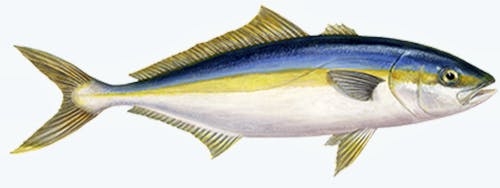All feed formulas developed by Aller Aqua at the Aller Aqua Research Centre follow these requirements to ensure proper growth and health:
Protein Needs:
Juveniles: 48–52% crude protein
Grow-out stage: 42–48% crude protein
Fat and Energy Needs:
Fat: 14–20% (high to meet energy needs)
Digestible energy: ~20–22 MJ/kg
The species benefits from diets rich in marine fish oil, which supports growth and maintains high-quality fillet composition.
Essential Nutrients:
Amino acids: Methionine, lysine, taurine (often supplemented)
Vitamins: A, C, D3, E, and B-complex
Minerals: Calcium, phosphorus, zinc, selenium, iron
Omega-3 fatty acids: Important for flesh quality and consumer health value
Feed Composition:
Traditionally fishmeal and fish oil-based, though sustainable feeds now include plant protein concentrates, algae-derived DHA, and processed animal proteins.
